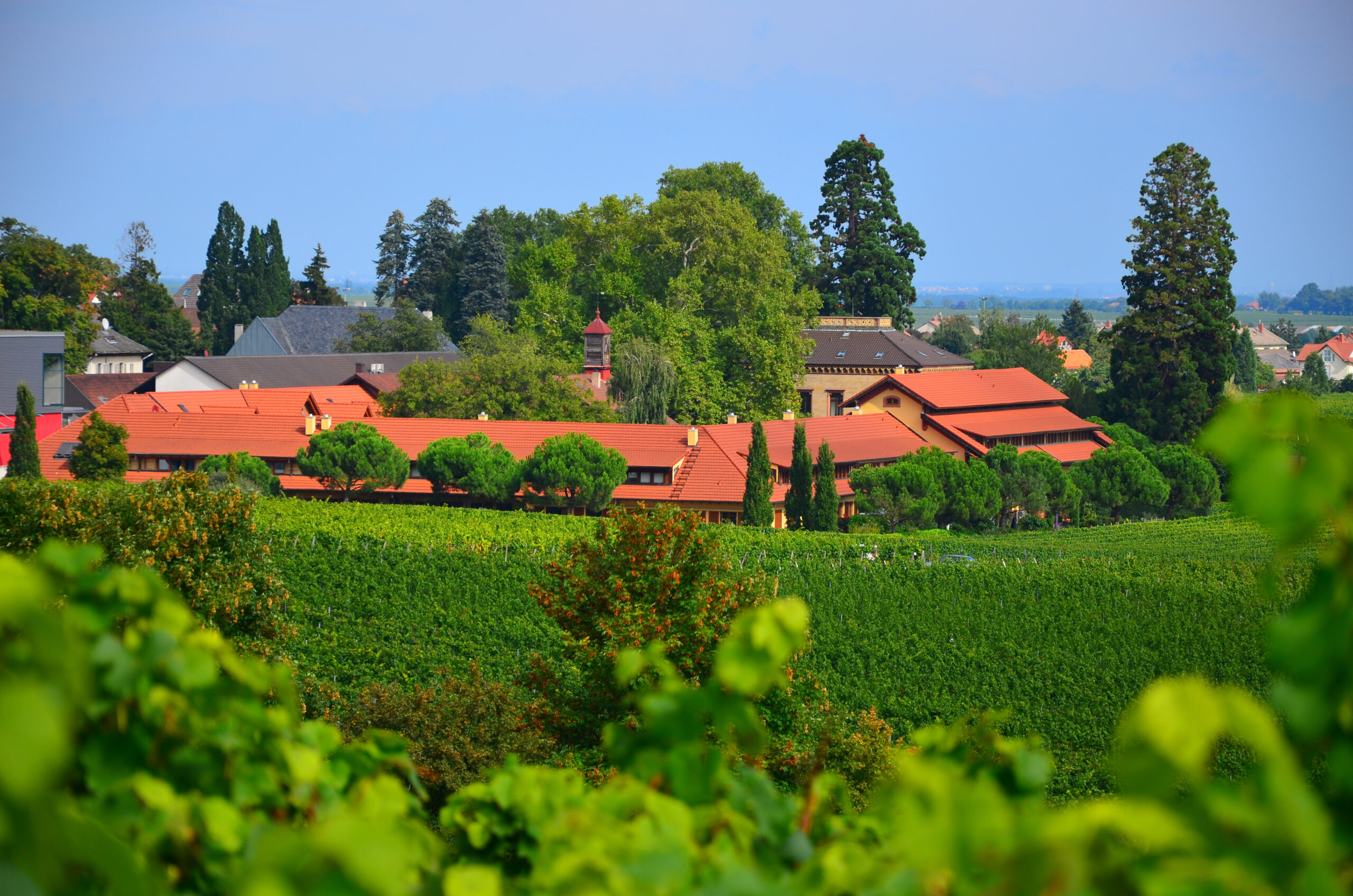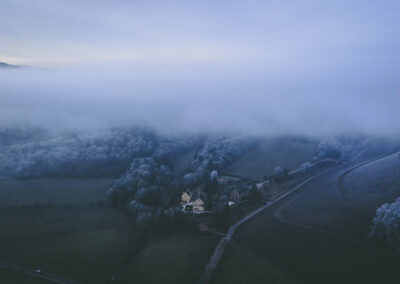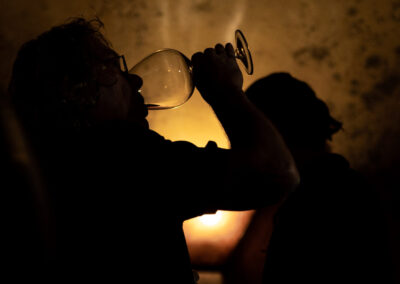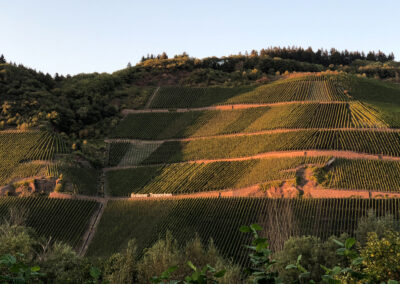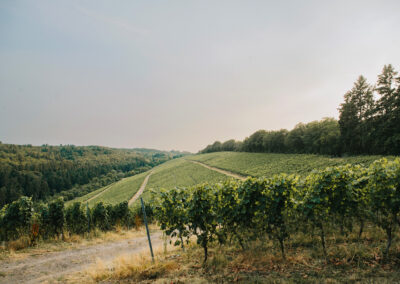Founded in 1756, the J.L. Wolf estate (now called Villa Wolf) was a successful and highly regarded winery for more than two centuries. It entered an especially glamorous era by constructing its Italianate estate house and villa in 1843. However, the estate languished in the latter years of the 20th century, lacking a firm hand to guide its wine production. Ernst Loosen, of Dr. Loosen, took over the vineyards in 1996, launching a dramatic turnaround in the estate’s quality and reputation. Erni’s goal at Villa Wolf is to produce wines that express the authentic terroir of the region.
The Quality Concept of Villa Wolf
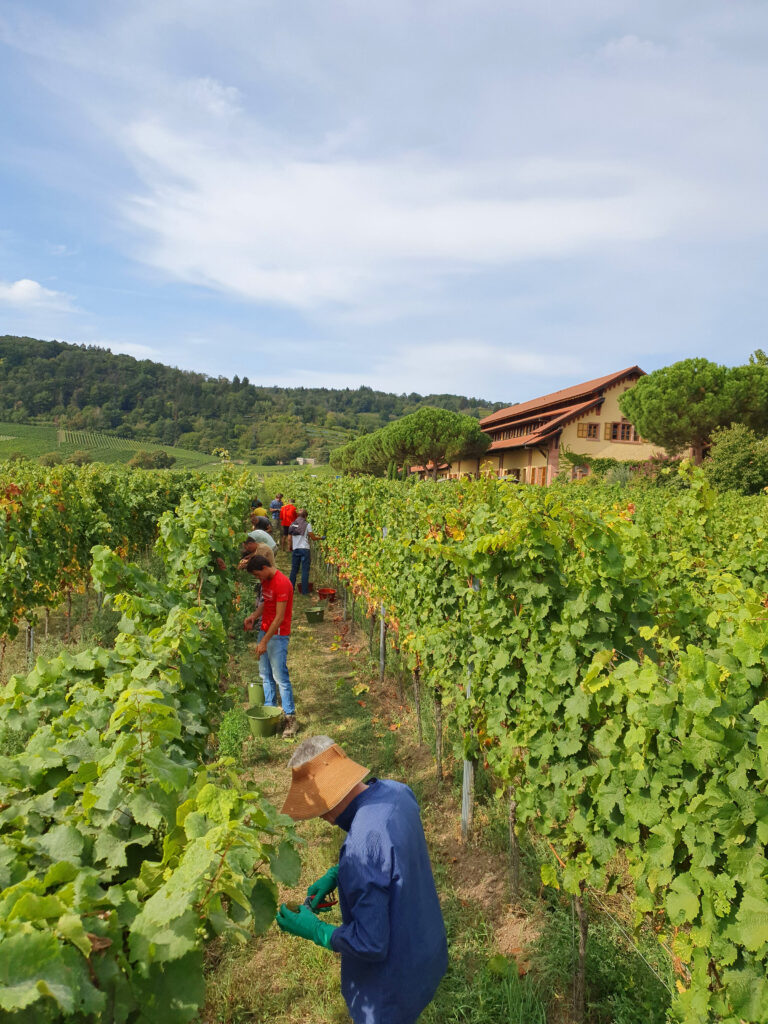
Harvesting in Goldbächel
The goal at Villa Wolf is to produce wines that express the pure, authentic style of the region. Made in the classic style of the Pfalz, Villa Wolf Rieslings are drier and more full-bodied than Mosel Rieslings, with fully ripe fruit flavors and a characteristic stoniness in the aroma. To preserve the naturally high quality of the vineyards, we employ sustainable viticultural practices and emphasize gentle handling of the fruit through traditional, minimalist winemaking.
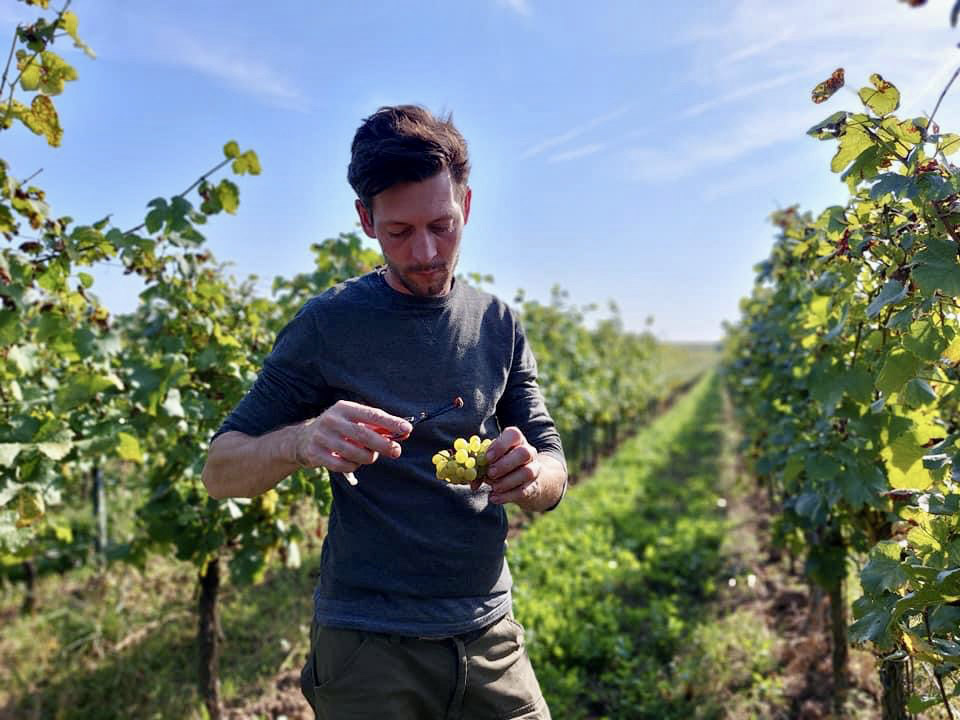
Patrick makes careful selections during harvest
The estate is managed by Patrick Möllendorf, who had previously worked in the cellar at Dr. Loosen. Patrick’s winemaking philosophy is based on the belief that great wines must start in the vineyard. He and his team work closely with nature, using sustainable practices to nurture biodiversity in the vineyards, providing a healthy and diverse microbiology in the soil. This is important for wines to express the character of the grape and the soil in which it is grown. Organic certification for the estate vineyards was achieved in 2021.
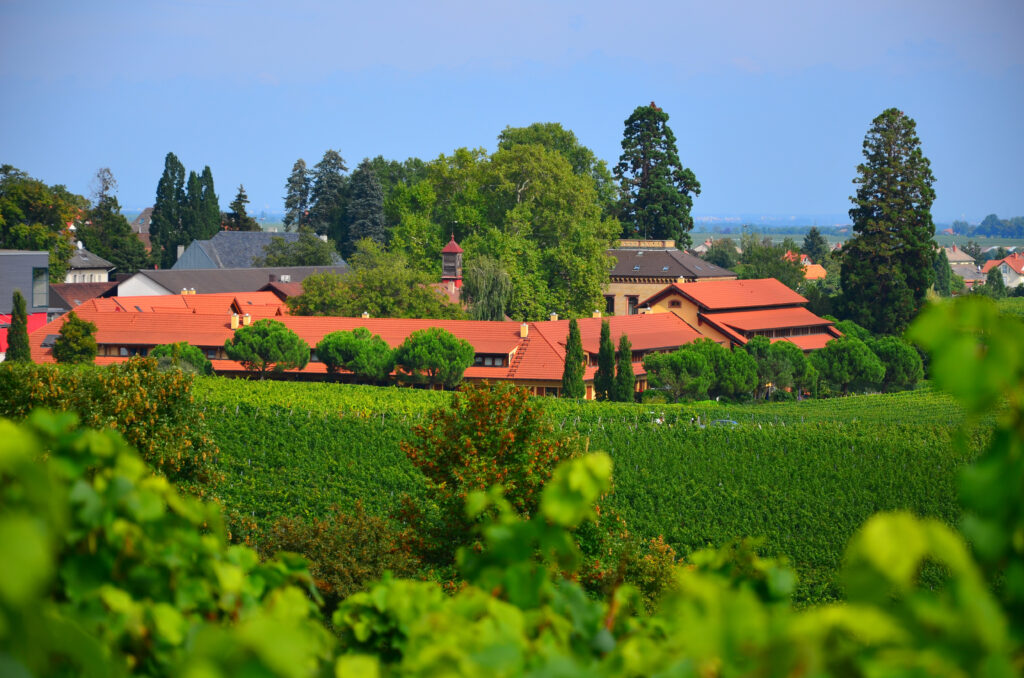
View to Villa Wolf estate from the Belz Vineyard
Their nurturing, sustainable approach is also carried into the cellar, with a focus on gentle handling of the wine throughout the entire process. This approach retains the clean, fresh fruit that represents the Villa Wolf style. The team is committed to traditional vinification methods, such as fermentation and aging in large, neutral oak casks, and spontaneous fermentation with natural yeasts.
With sustainable viticulture, minimal processing, and their constant pursuit of improvement, Patrick strives to capture the purity and special characteristics of the region, vineyard, and grape variety in each of their wines.
The Vineyards and Wines of Villa Wolf
Estate Vineyards
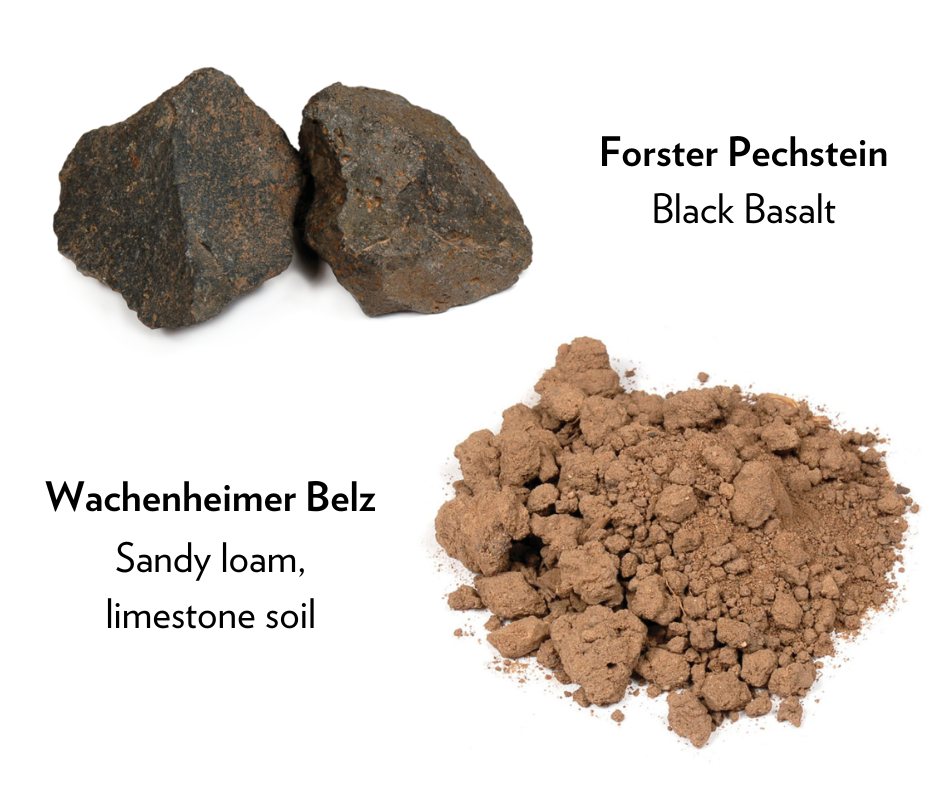
Forster Pechstein – The name Pechstein refers to the high basalt content in the soil, which produces racy wines with pronounced mineral aromas.
Wachenheimer Belz – The red sandstone provides beguiling fruitiness and a delicate, flinty aroma thanks to limestone deposits in the soil in this area of the Pfalz.
Varietal Wines
From contracted fruit
- Gewürztraminer
- Pinot Blanc
- Pinot Gris
- Riesling (off-dry)
- Riesling Dry
- Sauvignon Blanc
- Pinot Noir Rosé
- Pinot Noir Rosé Sparkling
- Pinot Noir
- Dornfelder
Village Wine
Estate-grown
- Wachenheimer Riesling
- The fruit for the Wachenheimer Riesling comes from a single-vineyard site, called Königswingert (“Kings Vineyard”), but the wine is labeled only with the village name. This excellent site lies just to the north of the village and is rated as a premier cru vineyard. The Wachenheimer Riesling has an elegant mineral purity and good intensity on the palate. It is refreshing and very easy to drink, but there is also a distinctive stony character that reflects the terroir of Königswingert.
Single-Vineyard Wines
Estate-grown
- Wachenheimer Belz Riesling Trocken
- The Belz (pronounced “BELTS”) vineyard, one of the finest in the village of Wachenheim, is the only site in the area with a significant amount of chalk (shell limestone) in the soil. It produces distinctive wines with a rounded structure and an engaging grapefruit note in the aroma. A captivating stony perfume emerges from the wine as it matures. This premier cru site is wholly owned by the Villa Wolf estate.
- Forster Pechstein Riesling Trocken
- Forster Pechstein (PESH-stine) is one of the finest vineyards in the Pfalz and has been regarded as a grand cru site for centuries. It lies on the gentle, east-facing slope that extends from behind the village of Forst up toward the Haardt Mountains. The name (literally, “tar stone”) refers to the black basalt stones in the soil, which give the wines a strong mineral backbone. Of all the vineyards at Villa Wolf, Pechstein produces the most assertive, mineral-driven Rieslings.

